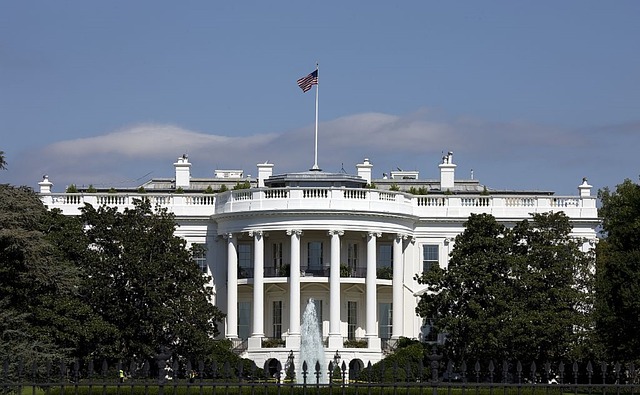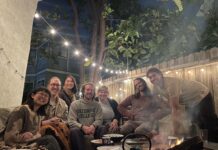By Gary Roland
 “We can’t wait any longer to restore our relationship with the Earth
“We can’t wait any longer to restore our relationship with the Earth
because right now the Earth and everyone on Earth is in real danger.
“When a society is overcome by greed and pride, there is violence and unnecessary devastation. When we perpetrate violence towards our own and other species, we’re being violent toward ourselves at the same time.
“When we know how to protect all beings, we will be protecting ourselves. A spiritual revolution is needed if we’re going to confront the environmental challenges that face us.”
~Thich Nhat Hanh, Love Letter to the Earth (2013)
On March 2nd, I was blessed to have the opportunity to be arrested with 397 students and activists at the White House, during a Direct Action called XL Dissent.
It was designed to send a clear message to President Obama to reject the Keystone XL pipeline. After marching with over 1,000 students & activists from the Georgetown Campus, we stopped in Lafayette Square to prepare for arrest and to hear from speakers. Ben Thompson, a PhD student at Boston University, told the crowd, “We also have the opportunity today to show the world how much we can love. Our actions amount to a series of actions of love. Today in love, we will stop the Keystone Pipeline.”
Thompson continued to rousing applause, “Because we can take these steps in anger, or fear or hatred, but let us choose love, a love that is powerful. This is when we need to draw on our resolve to take those steps. So think of who you take those steps for, and in your heart say I love you. As you lock yourself to that fence, I love you.”
Volition, or the motivation behind the actions we take, is one of the four nutriments that nourish us according to the Buddha. My career as an activist is a testament to the idea that in order to sustain ourselves, the reasons why we do things are just as important as what we do.
Early last year, after spending a month and a half working in the Far Rockaways as part of the #OccupySandy relief effort, I found myself at a low point. An important relationship was dissolving before my eyes, and after witnessing the suffering brought on by Hurricane Sandy’s destructive power, I felt lost. Fortunately I had a supportive family on which I could lean for support during this dark period, a fact that I continue to be grateful for.
After three months of overwhelming suffering, I made the fortuitous decision to go for a ten day retreat to Magnolia Grove Meditation Center for my birthday.
Magnolia Grove is a Monastery in the tradition of Thich Nhat Hanh, whom the nuns and monks lovingly refer to as Thay. This is Vietnamese for “teacher.” It was the Sangha of Magnolia Grove’s support that allowed me to begin to embrace my suffering. At the end of the ten day retreat, the transformation, healing, and rejuvenation I felt amazed me. After several months of absence, glimpses of joy were once again present in my life.
Maybe the Brothers and Sisters could sense that I still had a long way to go, or maybe they were in desperate need of help to finish the construction of their new meditation hall.
Either way, I was invited to come back to stay for an extended period of time, an invitation that I am extremely grateful for, and that saved my life. Thay likes to say, “No Mud, No Lotus”, and over the next nine months I learned how to embrace the suffering that I had endured and witnessed.
By embracing my suffering, it could then be transformed into compassion, loving kindness, and true happiness.
As I lay on the hard, cold sidewalk in front of the White House, on top of a tarp symbolizing “a human oil spill,” I could hear the chants of my fellow activists.
I could hear the click of the news media’s cameras, and the busyness of the Secret Service and Park Police preparing to arrest us. My eyes were closed and Thay’s words came back to me, “Breathing in, I know that I am breathing in. Breathing out, I know that I am breathing out.” The sidewalk became a little softer and a little warmer as the earth I was lying on supported me in taking my breaths of love.
The night before I had tossed and turned with pre-arrest jitters. In the past, I might have grabbed a cigarette, drank a beer, or turned on the television, but now I simply sat, checking in with myself and acknowledging that I had every right to be nervous. After sitting for some time and recognizing that I was not quite ready for sleep, I pulled up this past New Year’s Eve Dharma Talk given by Thay at the Winter Retreat.
The talk begins with Thay, sitting with the Brothers and Sisters, and leading a guided meditation. “A few months ago, we were invited by the Department of Neuroscience at Stanford University to speak about compassion,” Thay begins by saying, “If we are always trying to run away from suffering, we have no chance to understand compassion, and to generate the energy of love and compassion.” After speaking for several minutes, he begins to introduce the chanting of the name of the Bodhisattva of Compassionate Listening, Avalokiteshvaraya.
“Every time they chant the name three times. During the first time of the chanting, they try to go home to themselves, and touch the suffering inside of them, because the monastics like all of us, they do have suffering inside of them. And when they chant the name for the second time, they reach out, trying to touch the suffering of the people in front of them, on the left, to the right, and behind them, because every one of us have suffering inside of us. For the third time, they reach out and touch the suffering everywhere in the world. War, violence, suicide, social injustice, death. Everywhere. Asia, Africa, America, Europe. Everywhere. And the purpose is the same, to allow the compassion in us to be born and to grow.”
The Direct Action began at Georgetown University, where President Obama gave a climate speech saying that he would not approve Keystone XL if the State Department’s Environmental Impact Statement showed that it would exacerbate Climate Change.
On Friday, January 31st, the State Department issued its report, and unsurprisingly it gave the obtuse argument that because the oil produced from the Tar Sands would be burned anyway, it wouldn’t really matter if the north leg of the Keystone XL was built to carry it from Alberta to Houston.
This argument has many problems, the least of which is that ERM, the company that prepared it, is a member of the American Petroleum Institute, a lobbying group that lobbies for the expansion of oil production.
In 2012 James Hansen, the Director of the NASA Goddard Institute for Space Studies, wrote in the New York Times that the exploitation of the Canadian Tar Sands would mean “Game over for climate change.”
I have experienced firsthand the devastation and suffering caused by a mile-wide tornado that struck my hometown, Hurricane Isaac in New Orleans, and Hurricane Sandy on the east coast, all within the last three years. I admit that I am not an impartial observer, and that the increasing regularity of extreme weather events is something that gives me concern. As a frequent traveler I am also aware of how reliant most of us have become on oil, and that every jet plane I take contributes to the carbon emissions that are causing Climate Change.
It’s nearly impossible to live in our modern industrial world without having a carbon footprint, and the responsibility for the suffering caused by Climate Change is a responsibility that we all bear.
Often Climate Change deniers like to paint environmentalists as holier than thou idealists, who are naive about the fact that oil makes much of our consumption possible. They often feel that environmentalists are attacking their “way of life”. How can we unpack this dichotomy and arrive at true compassion?
Anger, fear, and defensiveness are natural responses to suffering, and the suggestion that that one’s way of consuming is actively creating the destruction of the Earth is a suggestion that provokes an enormous amount of suffering. In a culture that prescribes the avoidance of suffering through consumption, the collective suffering provoked by Climate Change is so great that many people on both sides of the argument are unable to accept or confront it.
Yet it is imperative that we end the debate, finally confronting Climate Change as a society, and begin to take action to cease exacerbating the catastrophic conditions we have already created. This argument will not be ended by further villainization, polarization, and divisiveness, but rather through the cultivation of compassion.
After several minutes of laying down with my tongue hanging out of the corner of my mouth, pretending to be dead and focusing on my breath, the click and whir of the news camera stopped.
I opened my eyes and saw that the police had set up a barrier, enclosing those of us who were part of the protest. The theatrics where over and now began the long wait to be arrested.
I drew a long breath in as memories of cars tossed and crumpled like tin cans, trees twisted without branches, mold infested basements that numbed hands in minutes, water-logged picture albums left in the gutter, soldiers with M16′s menacing people looking for water, and houses washed off their foundations in the middle of the road flooded my mind, touching my suffering.
“Namovalo,” I began to chant with my out breath. “Kiteshvaraya.”
As I drew in my next in breath, I felt the suffering of the students that surrounded me, whose futures would be marred with devastating droughts, desertification, famine, catastrophic weather events, and the washing away of much of human civilization by the relentless rise of the ocean. I felt the suffering of the reporters, who had been sent to cover a protest that their corporate publishers and advertisers would never allow to be published.
I reached out and felt the suffering of the Park Police preparing to arrest us as they saw the faces of their sons and daughters in the young students they were about to arrest.
Finally, I reached through the fence and across the lawn, feeling the suffering of a President who had launched his campaign in 2007 by stating that he wanted to “end the tyranny of oil,” wanted to close Guantanamo and wanted to do the right thing by the American people.
Now, seven years later, he is much grayer, not just a Junior Senator, but the leader of his party. He finds himself constrained by the politics of a sick government flooded with corporate lobbying, unable to do the right thing, the things he had promised to do.
That is, without his party suffering the consequences of disobeying the corporate campaign donations that are now necessary to get elected.
“Namovalokiteshvaraya.”
With my third in-breath I reached out to the Climate Deniers, touching their fear and anguish that their beloved cars, their appetites, their shopping habits, and the consumption “which is the envy of the world” might actually be stealing the futures of their children. I touched the despair that this unfortunate reality creates, the anxiety, the overwhelming panic, the self doubt, and the tendency to want to run from this realization.
To want to internalize this fact as a judgement about oneself, to want to turn away rather than consider that one might be a “bad” person, that one’s lifestyle is destroying the earth.
“You’re not a bad person,” I said, “And I love you.”
















